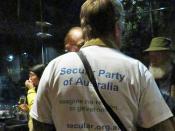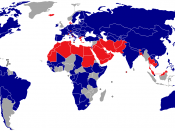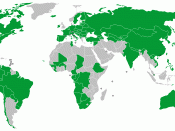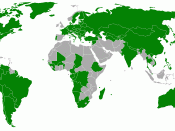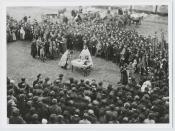With regards to this topic, I have a different opinion for each type of state.
A democratic state is a state which is ruled by the people; democracy implies both popular participation and government in the public interest. For this reason, whether or not an official religious service should take place in a school should be the choice of the people. Those schools which would like to have an official religious service should be allowed to, those that don't should have the choice to not.
A secular state is a state where there is a belief that religion should not intrude into worldly affairs, usually accompanied by a desire to separate church from the state. In a secular state, I do not believe that an official religious service should take place because education is a secular affair, and holding services in a government education facility would be defying the beliefs of a secular system.
In a multi-religious state, it is difficult to say whether or not an official religious service should take place or not. In government schools that have scholars of only one religion, it could be allowed. But, in a multi-religious, multi-cultural state, there will be scholars in each school of many different religious denominations. For this reason, I believe that government schools in a multi-religious state should NOT hold official religious services, because it could be viewed as an attempt to impose certain religious values on people with different religious backgrounds.

